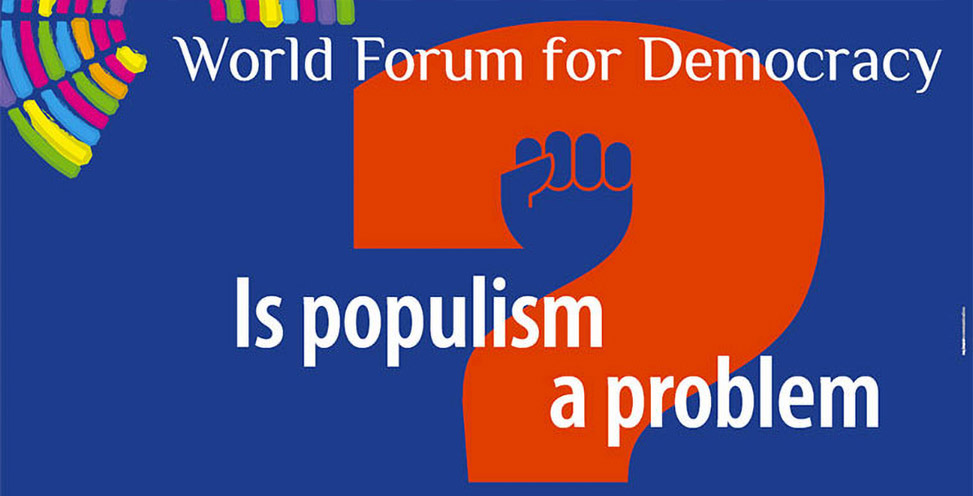World Forum for Democracy 2017 – “Is Populism a Problem?”

The sixth edition of the World Forum for Democracy gathered more than 2000 participants from over 80 countries. Politicians and international leaders provided their views on the question of populism and its impact on traditional party and media structures as well as on multilateralism. Civil society actors, politicians, experts, journalists and youth leaders reviewed in laboratories innovative initiatives to counter populist trends and to safeguard pluralistic and open democracies.
Populism is now Europe’s third political force behind conservatism and social democracy, with 19% of European voters choosing populist parties. Left and right-wing anti-establishment parties are here to stay, pursuing a three-decade long trend which has reduced extremism to a fringe phenomenon. To what extent their authoritarian and illiberal ideas will be adopted by mainstream parties remains an open question[1].
Across a number of countries polled world-wide, half consider representative democracy a very or somewhat good way to govern their country. Yet, in all countries, pro-democracy attitudes coexist, to varying degrees, with openness to nondemocratic forms of governance, including rule by experts, a strong leader or the military. Countries with more democratic systems and greater wealth show more widespread commitment to representative democracy[2].
At the same time, majorities in nearly all nations also embrace another form of democracy that places less emphasis on elected representatives. A global median of 66% say direct democracy – in which citizens, rather than elected officials, give a binding vote on major issues – would be a good way to govern. This idea is especially popular among Western European populists.
[1]Timbro Authoritarian Populist Index 2017
[2] PEW Globally, Broad Support for Representative and Direct Democracy, October 2017
Participants
- Abdelrasoul Mahmud, Advisor in the Ministry of Migration Policy of Greece
- Dimarelos Georgios, Vice Mayor on Urban Resilience and Development Programmes
- Eleftheriadou Styliani, Student
- Fotiadis Alexandros, Journalist
- Grammenos Christos, Student
- Kalaintzis Emmanouil, Policy Advisor
- Kapourkatsidis Ananias, Student
- Katsoulis Stefanos, PhD student in international law
- Kesoglou Anastasios, Student
- Kitsou Stavroula, Lawyer
- Kokkali Ifigeneia-Evlampia, Urban Planner
- Nikopoulos Kyriakos, Student
- Nikou Stergiani, MA studies
- Panagoulia Angeliki, NGO employee
- Tzannetakis Panagiotis, Founder of Khora Community Centre








